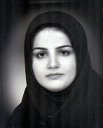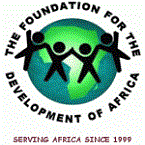
Mental Health Conferences 2023 | Mental Health Conference 2023 | Mental health Congress 2023 | Psychiatry Conferences | Psychiatry Conferences 2023 | Neurology Conferences 2023 | Neurology Conferences | Paris | France | Europe | USA

The Mental Health Congress 2023 is honored to host high-profile keynote speakers from around the world as well as many concurrent oral and poster presentations, young researchers forum, delegates to discuss and share on Mental Health and Psychiatry.
mental Health Conferences | Psychiatry Conferences | Paris | France
Theme: Reintegrating innovations in Addiction Psychiatry to improve Mental Health
Mental Health Congress 2023
We are currently bringing forth "35th International conference on Mental Health and Psychiatry" (Mental Health Congress 2023) slated on April 17-18, 2023 at Paris, France highlighting the theme “Reintegrating innovations in Addiction Psychiatry to improve Mental Health”. The conference invites all the participants across the globe to attend and share their insights and convey in the field of Psychology.
The Mental Health Congress 2023 is honored to host high-profile keynote speakers from around the world as well as many concurrent oral and poster presentations, young researchers forum, delegates to discuss and share on Mental Health and Psychiatry.
Who you will meet?
- Psychiatrists
- Psychologists
- Neurologists
- Nurses
- Psychotherapists
- Neuropsychiatrists
- Professors
- Students
- Neuro drug Manufacturers
Who should sponsor?
- Psychiatry Societies
- Psychology Institutes
- Hospitals
- Pharmaceuticals
- Drug Manufacturers
- Educational Institutes
- Research Centers
Why you should attend?
- Integrating the psychotherapy on Behavioral health.
- Engage in the exciting event format, with round tables, panels, showcases, speed networking and multiple conference tracks.
- Share experiences, insights and strategies in interactive peer-to peer round tables.
- Hear more perspectives in one place – from large medium and small organisations from pharma, biotech and academia.
Benefits of attending:
- Networking Opportunities, Grow Your Professional Network
- Build Your Knowledge Base
- Expand Your Resources
- Meet Experts & Influencers Face to Face
- Learning In a New Space
- Break Out of Your Comfort Zone
- New Tips & Tactics
- Greater Focus
- The Serendipity of the Random Workshop
Why exhibit?
- Make sales
- Debut new products
- Profile your brand
- Meet new business partners and suppliers
- Develop key relationships
- Educate Neuroscience institutions and academia
Salient Features:
- Global Visibility of your research work
- Global Networking Opportunities
- To meet University circles and Corporate visionaries
- Knowledge, Benchmarking and Make contacts
- Highly planned and organized scientific programs
- Best Oral and Poster presentations
- Formulate new medical strategies
Track 1: Mental health
Mental health denotes to cognitive, behavioral, and expressive well-being. It is totally about how people think, feel, and behave. People at times use the term “mental health” to mean the absence of a mental disorder. Observing after mental health can preserve a person’s ability to enjoy life. Doing this includes reaching a balance between life activities, responsibilities, and efforts to achieve psychological resilience. Conditions such as stress, depression, and anxiety can completely affect mental health and disrupt a person’s routine. Although the term mental health is in common use, several conditions that doctors recognize as psychological disorders have physical roots.
Track 2: Stress, Anxiety and Depression
The overwhelming majority encounter stress and nervousness every once during a while. Stress is any request placed on your cerebrum or human body. Individuals can report feeling focused when various contending requests are placed on them. The sentiments being focused are often activated by an event that influences you to feel baffled or anxious. Tension may be a sentiment dread, stress, or unease. It are often a response to worry, or it can happen in individuals who can't distinguish noteworthy stressors throughout their life.
Track 3: Psychology & Psychotherapy
Psychotherapy, also called counseling, any form of treatment for psychological, emotional, or behavioral disorders in which a trained person establishes a relationship with one or more patients for the purpose of modifying or eliminating existing symptoms and promoting personality growth.
Track 4: Attention-deficit/hyperactivity disorder
ADHD is one of the most common neurodevelopmental disorders in childhood. It is usually first diagnosed in childhood and often persists into adulthood. Kids with ADHD may have trouble paying attention, controlling impulsive behaviors (they may act without thinking about the outcome), or be overly active.
Track 5: Child and Adolescent Mental Health
The child and adolescent Psychiatry is dealt by the therapist who works in the analysis and the treatment of issues of reasoning, feeling or potentially conducts influencing youngsters, teenagers, and their families. A child and adolescent therapist offers families the upsides of clinical instruction, the clinical customs of expert morals, and clinical obligation regarding giving exhaustive consideration. It researches the biopsychosocial factors that impact the turn of events and course of mental problems and treatment reactions to different intercessions. Child and adolescent specialists fundamentally use psychotherapy or potentially drug to treat mental issues in the pediatric populace.
Track 6: Bipolar disorder & Schizophrenia
Bipolar disorder and Schizophrenia are severe mental illnesses commonly referred to as psychotic disorders, meaning symptoms can include psychosis—impaired thoughts and emotions severe enough to induce a disconnect from reality. Bipolar disorder causes severe shifts in mood, ranging from depressive lows to manic highs. Schizophrenia is a chronic and severe mental health disorder that affects how a person thinks feels and behaves. People with schizophrenia may seem like they have lost touch with reality and can experience hallucinations, delusions, and disorganized thinking.
Track 7: Addiction
Addiction may be a condition that outcomes when a person ingests a substance (e.g., liquor, cocaine, nicotine) or takes part during a movement (e.g., betting, sex, shopping) which will be pleasurable yet the continuation of which finishes up plainly impulsive and meddles with standard duties and concerns, for instance , work, connections, or wellbeing. Individuals who have built up dependence might not know that their conduct is wild and causing issues for themselves also as people.
Track 8: Autism Spectrum Disorder
Autism also named autism spectrum disorder (ASD) is a complicated condition that contains problems with communication and behavior. People with autism have trouble with communication. People with Autism have trouble understanding what other people think and feel about them. Autism spectrum disorder is a disorder associated to brain development that effects how a person witnesses and socializes with others causing problems in social interaction and communication. The disorder also covers limited and repetitive patterns of behavior.
Track 9: Psychoanalysis
Psychoanalysis is defined as a set of psychological theories and therapeutic techniques that which have their origin in the work with theories of Sigmund Freud. The core of psychoanalysis is the belief that all people possess unconscious thoughts feelings and desires and memories.
Track 10: Mental health awareness
Mental health awareness is the ongoing effort to reduce the stigma surrounding mental illness and mental health issues by sharing our personal experiences. Often, due to misconceptions about mental health and mental fitness, people often suffer in silence and their conditions go untreated.
Track 11: Pediatric psychiatry
Pediatric psychiatry, branch of medicine concerned with the study and treatment of mental, emotional, and behavioral disorders of childhood. Pediatric psychiatry has been recognized as a division of the field of psychiatry and neurology since the mid-1920s. By about the mid-1950s, the American Board of Psychiatry and Neurology had officially recognized the subspecialty and defined training and certification requirements for it. Subdivisions within the field include infant psychiatry and adolescent psychiatry.
Track 12: Psychiatric Rehabilitation
Individuals suffering from severe mental dysfunction require rehabilitation. The goal of psychiatric rehabilitation is to help disabled individuals to develop the emotional, social, physical and intellectual skills which are important to live, learn and work in the community with the least amount of professional support.
Track 13: Psychosomatic Medicine
Psychosomatic medicine is a newly licensed sub specialty in the field of psychiatry. It is also known as consultation-liaison psychiatry. It provides knowledge, practice and instruction in the relation between mental and physical illness. This field is connected with services like diagnosis, therapeutics and research of disorders in this particular area. Hence it connects psychiatry and other medical specialties, so that psychiatrists can discuss how to manage patients with psychosomatic dysfunction.
Track 14: Positive Psychology
It is the disquisition of happiness. Psychology is generally centered on brokenness, people with brain problems or other problems, and its treatment. Positive psychology consists of logically considering the positive corridor of life. This is an area that examines how the norm exists can end in more joy and more satisfaction.
Track 15: Clinical Neuropsychology
Clinical neuropsychology is a specialty area of ​​clinical brain research devoted to understanding the links between the brain and behavior, especially as these links can be applied to the determination of brain disorders, the assessment mental and social work and the design of effective treatment.
Track 16: Human Resilience
Human Resilience is the psychological condition of someone who is functioning at a satisfactory level of an emotional and also the behavioral adjustment. Mental health can includes emotional, psychological, and also social well-being. It can affects however we expect, feel, and act. It additionally helps to verify however we have a tendency to handle stress, relate to others, and also build decisions.
Track 17: Mental Health Disorder
A mental disorder is characterized by a clinically significant disturbance in an individual's cognition, emotional regulation, or behavior. It is usually associated with distress or impairment in important areas of functioning. There are many types of mental disorders.
Track 18: Mental health Nursing
Psychiatric nursing or Mental health nursing is the appointed nurse specializes in mental health, and cares for people of all ages experiencing mental illnesses or distress. These include: schizophrenia, schizoaffective disorder, mood disorders, anxiety disorders, personality disorders, eating disorders, and suicidal thoughts, psychosis, paranoia, Alzheimer’s disease and other forms of dementia. Nurses in this area receive specific training in psychological therapies, building a therapeutic alliance, dealing with challenging behavior, and the administration of psychiatric medication.
Track 19: Comorbidity
Comorbidity happens whilst someone has a couple of sickness or situation on the identical time. Conditions defined as comorbidities are often chronic or long-time period conditions.
Track 20: Forensic Psychology
Forensic psychology is a specialty of professional psychology characterized by activities primarily intended to provide professional psychological expertise within the judicial and legal systems.
Track 21: Eating Disorders
Eating disorder is a mental disorder defined by abnormal eating habits that negatively affect a person's physical and/or mental health. Eating disorders are actually serious and often fatal illnesses associated with severe disturbances in eating behaviors and associated thoughts and emotions. Preoccupation with food, body weight, and fitness may also signal an eating disorder. Common eating disorders include anorexia nervosa, bulimia nervosa, and binge eating disorder.
Most eating disorders involve focusing too much on weight, body shape, and food, which leads to dangerous eating behaviors. These behaviors can have a significant impact on your body's ability to obtain proper nutrition. Eating disorders can harm the heart, digestive system, bones, teeth, and mouth, and lead to other illnesses. Eating disorders often develop in adolescence and early adulthood, although they can develop at other ages.
Track 22: Emergency Psychiatry
Emergency psychiatry is the clinical application of psychiatry in emergency settings. Conditions requiring psychiatric interventions may include attempted suicide, substance abuse, depression, psychosis, violence or other rapid changes in behavior. Psychiatric emergency services are rendered by professionals in the fields of medicine, nursing, psychology and social work.
Track 23: Social Psychiatry and Psychiatric Epidemiology
Social psychiatry is a department of psychiatry that specializes in the interpersonal and cultural context of mental sickness and mental wellbeing. It entails an every now and then disparate set of theories and approaches, with paintings stretching from epidemiological survey studies on the only hand, to a vague boundary with character or institution psychotherapy at the other.
Track 24: Neuroimaging
Neuroimaging is using computational strategies to observe the shape and feature of the central nervous system, advanced as a goal manner of scientifically reading the healthy human brain in a non-invasive manner. Increasingly it's also getting used for quantitative research of brain disorder and psychiatric illness. Neuroimaging is an incredibly multidisciplinary studies subject and isn't always a scientific specialty.
Track 25: Neuropsychiatry
Neuropsychiatry, an area of science and medicine focused on the integrated study of psychiatric and neurological conditions and the treatment of people with neurologically-based disorders. In science, neuropsychiatry supports the sector of neuroscience and is used to better understand the neurological underpinnings of psychiatric and neurologic disorders and to look at the treatment and care of persons with neurological conditions, particularly people who affect behavior.
Track 26: Psychoneuroimmunology
Psychoneuroimmunology (PNI), also called psychoendoneuroimmunology (PENI) or psychoneuroendocrinoimmunology (PNEI), is the study of the interaction between psychological processes and the nervous and immune systems of the human body. It is a subfield of psychosomatic medicine. PNI takes an interdisciplinary approach, integrating psychology, neuroscience, immunology, physiology, genetics, pharmacology, molecular biology, psychiatry, behavioral medicine, infectious diseases, endocrinology and rheumatology.
Track 27: Psychopathology
Psychopathology is the study of abnormal cognition, behavior, and experiences that differ according to social norms and are based on a number of constructs considered to be the social norm at a given time.
Track 28: Psychopharmacology
Psychopharmacology is the scientific study of the effects of drugs on mood, feeling, thinking, and behavior. It is distinct from neuropsychopharmacology, which emphasizes the correlation between drug-induced changes in the functioning of nervous system cells and changes in consciousness and behavior.
Track 29: Psychophysiology
Psychophysiology is the study of the relationship between physiological signals registered by the body and brain and mental processes and disorders. These biological signals can be generated by the activity of body organs or by muscle activity.
Track 30: Psychoeducation
Psychoeducation combines the elements of cognitive-behavior therapy, group therapy, and education. The basic aim is to provide the patient and families knowledge about various facets of the illness and its treatment so that they can work together with mental health professionals for a better overall outcome.
Track 31: Addictive Disorders
Addictive disorders, such as substance abuse and dependence, are common disorders that involve the overuse of alcohol and drugs. Addiction develops over time and is a chronic and relapsing illness. In most cases, people with addictions frequently suffer from a mental illness, such as depression, anxiety or another disorder. Addictive disorders are caused by multiple factors, including genetic vulnerability, environmental stressors, social pressures, individual personality characteristics and psychiatric problems.
From a neurological standpoint, addictive disorders arise when a substance changes the way the user’s brain feels pleasure. Addictive substances alter the brain’s ability to send and receive chemicals called neurotransmitters, which cause pleasure. The addictive substances can prevent nerves in the brain (called neurons) from receiving these neurotransmitters, meaning the drug user relies on the drug, rather than his or her natural brain chemicals, for feelings of pleasure.
Track 32: Post-Traumatic Stress Disorder
Post-traumatic stress disorder (PTSD) may be a sort of anxiety illness that a private could develop when being concerned about, or witnessing any traumatic events. The disorder was initial recognized in troopers and has been recognized by multiple names, reminiscent of 'shell shock. However, it is not solely diagnosed in troopers however conjointly a good variety of excruciating experiences will cause anxiety disorder. Anxiety disorder could also be represented contrarily in some situations: if an associate degree individual’s symptoms develop over six months when experiencing trauma, this may well be selected as 'delayed PTSD'. If someone has old trauma at an associate degree early age or it continued for an extended time, you would possibly be associate degree analysis of 'complex PTSD'. An anxiety disorder that develops when stunning expertise of labor is additionally called 'birth trauma'.
Track 33: Adult and Geriatric Psychiatry
Geriatric psychiatry is a sub specialty of psychiatry which deals with the study, prevention and treatment of mental disorders in human with old age. It emphasizes the psychological and biological aspects of normal ageing.
Track 34: Power of Yoga Medication
Track 35: Mental Health Policies
35th International conference on Mental Health and Psychiatry
We once again welcome you to 35th International conference on Mental Health and Psychiatry to be held during April 17-18, 2023 in Paris, France. The theme of the conference is based on “Reintegrating innovations in Addiction Psychiatry to improve Mental Health.”
The organizing committee is gearing up for an exciting and informative conference program including plenary lectures, symposia, workshops on a variety of topics, poster presentations and various programs for participants from all over the world. Our conference will provide you with exciting opportunities and international platform for hands-on learning and networking with colleagues, and communication with industry partners.
For more details please visit: https://mentalhealth.neurologyconference.com/
Market Value on Psychiatry research globally:
The global market for antipsychotic drugs was worth $12,417.60 million in 2020 and that value is worth to be $26,041.00 million in 2030 at a CAGR of 8.0% from 2021 to 2030. The global Behavioral health software market is projected to reach $4.9 billion by 2026, at a CAGR of 19.6% during the forecast period.
Market Growth of psychiatry research in the upcoming years:
Rise in stress condition, emotional and psychological pressure increases the demand for psychiatric therapies and antipsychotic drugs. According to WHO, 350 million population is suffering from psychiatric disorders and depression. Also around 24 million of the population is diagnosed with Schizophrenia. Thus skyrocketing the demand and market growth. Following table shows the antipsychotic drug count prescribed by psychologists.
Universities associated with Mental Health Research:
· Columbia University
· University of Glasgow
· Indiana University
· University of Edinburgh
· University of Washington
· McGill University
· University of Melbourne
· University of Sydney
· University of Toronto
· Duke Global Health Institute
Mental Health Societies and Associations:
· American Foundation for Suicide Prevention
· Brain and Behavior Research Foundation
· Other National and International Organizations
· Center for Psychiatric Rehabilitation
· The American Psychiatric Association
· American Association of Suicidology
· Active Minds
· Substance Abuse and Mental Health Services Administration
· The National Association of Psychiatric Health Systems
· The National Alliance on Mental Illness
· American Psychological Association
· The Joint Commission
· Parity Implementation Coalition
Mental Health Hospitals:
· McLean Hospital, Belmont, Massachusetts
· New York–Presbyterian University Hospital of Columbia and Cornell, New York City
· Johns Hopkins Hospital, Baltimore, Maryland
· Menninger Clinic, Houston, Texas
· Massachusetts General Hospital, Boston
· Sheppard and Enoch Pratt Hospital, Baltimore
· University of California, San Francisco, Medical Center
· Resnick Neuropsychiatric Hospital at the University of California-Los Angeles
· Mayo Clinic, Rochester, Minnesota
· Austen Riggs Center, Stockbridge, Massachusetts
· Yale–New Haven Hospital, Connecticut
· UPMC Presbyterian Shadyside, Pittsburgh, Pennsylvania
Target Audience:
Psychiatrists, Psychologists, Scientists, Professors, Neuropsychiatrists, Researchers, Mental health professionals, spiritual healers, Research scholars, Healthcare professionals, Pediatrists, Pharmacologists, Students, Rehabilitation specialists, Clinicians, Physicians, Nurse practitioners, Counselors, Young researchers, Therapists, Companies, Hospitals, Organizations, Medical centres, Business entrepreneurs, Social workers, Start-ups and Industrial professionals related to the fields of Psychology, Psychiatry and Health care sectors.
Conference Highlights
- Mental health
- Stress, Anxiety and Depression
- Psychology & Psychotherapy
- Attention-deficit/hyperactivity disorder
- Child and Adolescent Mental Health
- Bipolar disorder & Schizophrenia
- Addiction
- Autism Spectrum Disorder
- Psychoanalysis
- Mental health awareness
- Pediatric psychiatry
- Psychiatric Rehabilitation
- Psychosomatic Medicine
- Positive Psychology
- Clinical Neuropsychology
- Human Resilience
- Mental Health Disorder
- Mental health Nursing
- Comorbidity
- Forensic Psychology
- Eating Disorders
- Emergency Psychiatry
- Social Psychiatry and Psychiatric Epidemiology
- Neuroimaging
- Neuropsychiatry
- Psychoneuroimmunology
- Psychopathology
- Psychopharmacology
- Psychophysiology
- Psychoeducation
- Addictive Disorders
- Post-Traumatic Stress Disorder
- Adult and Geriatric Psychiatry
- Power of Yoga Medication
- Mental Health Policies
To share your views and research, please click here to register for the Conference.
To Collaborate Scientific Professionals around the World
| Conference Date | April 17-18, 2023 | ||
| Sponsors & Exhibitors |
|
||
| Speaker Opportunity Closed | |||
| Poster Opportunity Closed | Click Here to View | ||
Useful Links
Special Issues
All accepted abstracts will be published in respective Our International Journals.
- International Journal of Emergency Mental Health and Human Resilience
- International Journal of Mental Health & Psychiatry
- Journal of Psychology & Psychotherapy
Abstracts will be provided with Digital Object Identifier by





















